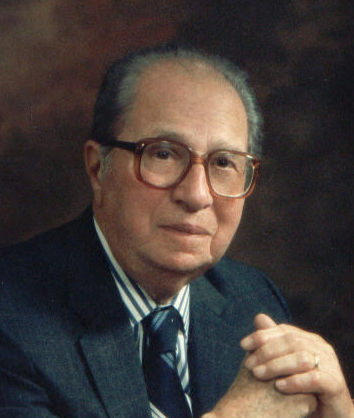Lesson 10: Putting It All Together
Skiing for Pleasure

Reading is like skiing. When done well, when done by an expert, both reading and skiing are graceful, harmonious activities. When done by a beginner, both are awkward, frustrating, and slow.
—Mortimer Adler, How to Read a Book, 54.

Mortimer Adler knew what he was talking about: he taught generations the difficult skill of reading books well.
We can also compare skiing to Bible study. When an expert is at work studying Scripture and recording the results of his study, the whole activity seems fluent and effortless. But it was not always the case, you can be sure. He too had to learn the separate steps of Bible study. He too needed instructors to teach him patiently, and he too made many mistakes along the way.
But, as Adler says,
Even the best instructor seems at first to be no help. The ease with which the instructor performs actions that he says are simple but that the student secretly believes are impossible is almost insulting. How can you remember everything the instructor says you have to remember? Bend your knees. Look down the hill. Keep your weight on the downhill ski. Keep your back straight, but nevertheless lean forward. The admonitions seem endless—how can you think about all that and still ski?
—Ibid., emphasis mine.

Of course, you're not supposed to be thinking about that while skiing.
[I]nstead, you should merely be looking ahead of you down the hill, anticipating bumps and other skiers, enjoying the feel of the cold wind on your cheeks, smiling with pleasure at the fluid grace of your body as you speed down the mountain. In other words, you must learn to forget the separate acts in order to perform all of them, and indeed any of them, well.
—Ibid., 54-55.

When you're a novice skier, that goal seems as unreachable as flying to the moon! But here is how you can reach it:
[I]n order to forget them as separate acts, you have to learn them first as separate acts. Only then can you put them together to become a good skier.
—Ibid., 55.

So it is with Bible study. The expert reads a passage, meditates on it, references an array of resources, and writes about it without being conscious that at one point he is asking questions based on systematic theology, the next based on biblical theology, and the next seeking to apply practical theology. He is simply studying! But in order to do this, each skill must be learned as a separate act.
To that end, this course taught you to read commentaries while asking the microscope and telescope questions, the temporal and thematic questions, the import and export questions, and more! Cheat sheets contain these questions and provide definitions of the five horizons. But the ultimate goal is not for you to glue the cheat sheets permanently to your desk. The goal is for you to so internalize the steps of using extrabiblical resources in Bible study that you can throw the cheat sheets away.
So if, at the end of this course, you feel like you're still bumbling along, limping painfully from horizon to horizon, tripping over definitions, and forgetting questions, don't be discouraged. Remember the goal of knowing and loving Jesus through Bible study, and keep practicing!